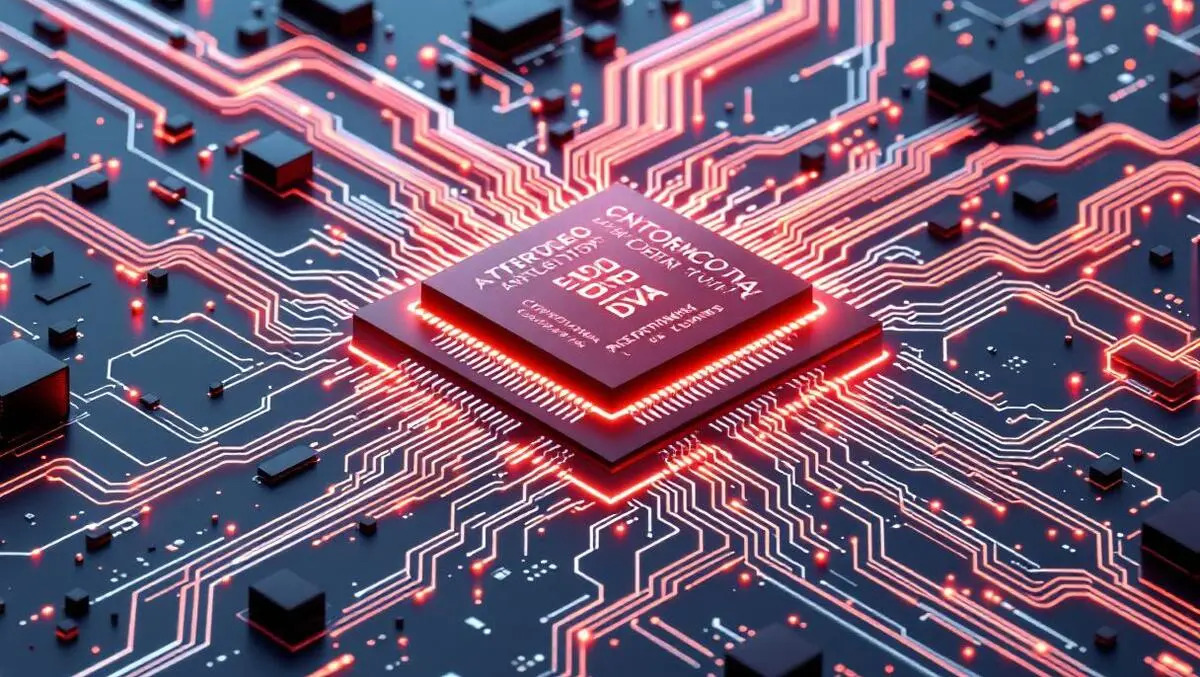VSORA has announced the tape-out of its AI inference chip Jotunn8, positioning Europe among the top three suppliers of AI inference hardware worldwide.
The French semiconductor company confirmed the successful tape-out of Jotunn8, designed to deliver large-scale artificial intelligence inference in data centres. According to VSORA, this milestone concludes the design phase and allows the industrial production process to begin, placing the firm among a small group of global suppliers of AI inference chips and distinguishing it as the sole European participant at this level.
VSORA completed this stage less than six months after raising EUR €40 million in funding, which the company says accelerates its entry into an exclusive group of providers supporting high-performance AI inference in data centre environments. The company is now preparing for full commercial deployment, with development boards, reference designs, and servers scheduled to become available in early 2026.
Addressing the memory wall
The company highlighted that a core challenge in current processor architectures for AI is the so-called “memory wall”, where high-performance compute units are left idle due to delays waiting for data transfer, diminishing efficiency and raising power demands. VSORA developed a new architecture for Jotunn8 specifically to mitigate this issue, eliminating what it identifies as longstanding trade-offs between speed, efficiency, and scalability in AI inference chips.
“The industry has been hitting a wall – literally. The memory wall problem has limited the efficiency of AI hardware for years. With Jotunn8, we’ve broken through that barrier. With our solution, cost per query is significantly reduced, making AI inference business models financially viable at scale.”, says Khaled Maalej, founder and CEO of VSORA.
Jotunn8 is designed for use across a range of AI inference scenarios, from large data centres to distributed edge devices. As companies increasingly invest in computing centre infrastructure and partnerships, the need for efficient large-scale deployment is becoming more pronounced, with training of models becoming only one part of the challenge.
Key features and partnerships
VSORA reports that Jotunn8 achieves 3,200 Tflops of compute power, uses 50% less energy compared to current market-leading chips, and incorporates 288 GB of HBM3e memory. The chiplet-based design, using TSMC’s 5nm production process alongside advanced CoWoS multi-chip packaging, aims to maximise system scalability and keep silicon area – and thus system costs – under control. The company collaborated closely with GUC on the silicon implementation.
“GUC is proud to help bring VSORA’s advanced AI processor to market. By combining VSORA’s breakthrough AI inference architecture with GUC’s silicon-proven IP and expertise in advanced nodes, packaging, and physical design, we delivered the Jotunn8 with outstanding performance and efficiency – right on schedule. This achievement showcases the strength of our collaboration and proven design excellence”, said Alex Huang, General Manager of GUC Europe.
The tape-out substantiates Jotunn8’s design and enables VSORA to move ahead towards manufacturing for full-scale deployment. The company expects its forthcoming offerings to span development boards and servers as part of its wider infrastructure strategy.
European context
VSORA’s entry into the global AI hardware market is seen as significant for European ambitions in technology and semiconductor independence.
“We set out to design an architecture that could sustain AI’s exponential growth. Jotunn8 represents a new class of processors that make large-scale AI deployment truly viable – technically, financially, and sustainably. This achievement also shows that Europe is not just a consumer of AI hardware, but a genuine innovator shaping its future”, added Khaled Maalej.
The company, headquartered in France, is supported by several major investors, including backing from the European Innovation Council. VSORA operates internationally, with offices in several key Asian technology hubs. Its chip solutions are aimed at both data centre-scale AI as well as edge applications, including autonomous vehicles and industrial robotics.

